Foreign News
Prague shooting: Gunman dead after killing more than 15 at Charles University
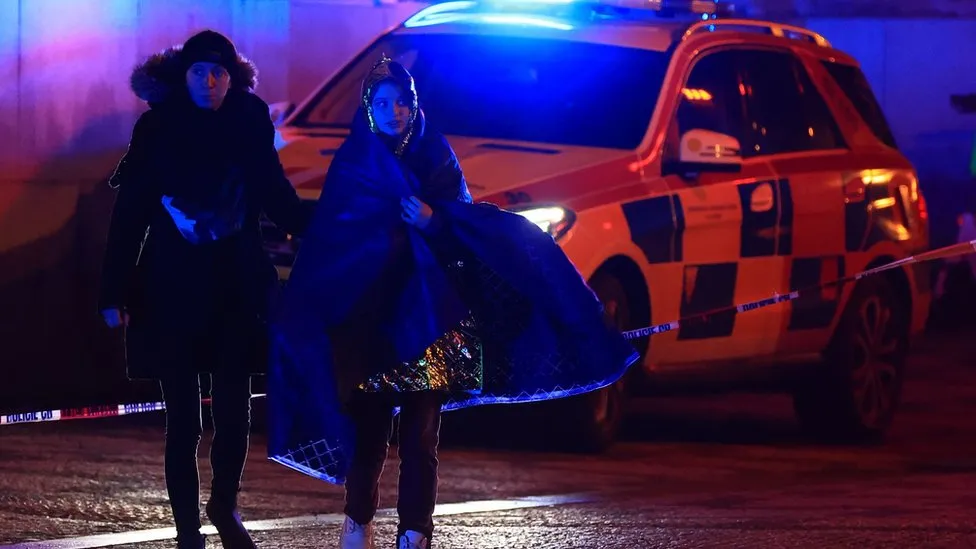
More than 15 people have been killed and 24 injured in a shooting at a university in Prague, officials say.
Police said the gunman had also been “eliminated” following the shooting at Charles University – the deadliest attack in modern Czech history.
Prime Minister Petr Fiala said he had cancelled upcoming engagements in light of the “tragic events” on Thursday. University staff were told to stay put, barricade themselves in rooms and turn off the lights.
Footage has emerged on social video showing terrified crowds fleeing the area popular with tourists.
Police received first reports of shooting at the university’s Faculty of Arts on Jan Palach Square in the centre of the capital after 15:00 local time (14:00 GMT).
At a briefing later on Thursday, the police and city authorities said the gunman was a student at the faculty. They said he was a 24-year-old from a village 21km (13 miles) outside Prague. The suspect’s father had been found dead earlier on Thursday. The gunman’s motives were not immediately known.
Preliminary information suggested that no police officers were injured in the attack, the authorities said.
Sergey Medvedev, a professor at the university, told the BBC he was in the auditorium when the shootings began. “I was giving a lecture at the moment and at first didn’t quite realise what happened because there were some sounds. The students, I think, heard it better because I was so much concentrated on my talking, on my lecture,” he said.
“Then, we understood that something big is happening. There was nothing online yet, nothing in the Czech press and the news networks. Then at some point, the special operation groups went storming in, they searched the room briefly and then went out… they told us to stay inside. “One hour later, another police squad broke in and then put us on the floor, briefly searched us then evacuated from the building,” the professor added.
Verified images from the scene appeared to show people clinging on to the outside wall of the university building, several storeys up.
Targ Patience, a British-Australian who was staying in a flat near the scene, told the BBC that he heard “a lot of gunshots”. “I looked out of my balcony and saw the police arrive. A few officers were having a hard time stopping people walking towards the scene,” he sad.
“We heard four loud gunshots,” Joe Hyland, 18, from Truro, Cornwall, told the BBC. “Everyone was sprinting and running for cover. “I have a bad knee, am on a crutch. So I hobbled as quickly as possible,” added Hyland, who was on his first holiday with friends. “We got to the metro and went down there because we thought it would be safest.”
Students said they had barricaded themselves in classrooms. “Currently stuck inside my classroom in Prague,” Jakob Weizman, a student at Charles University, wrote on X (formerly Twitter) as it unfolded.
“Locked the door before the shooter tried to open it.”
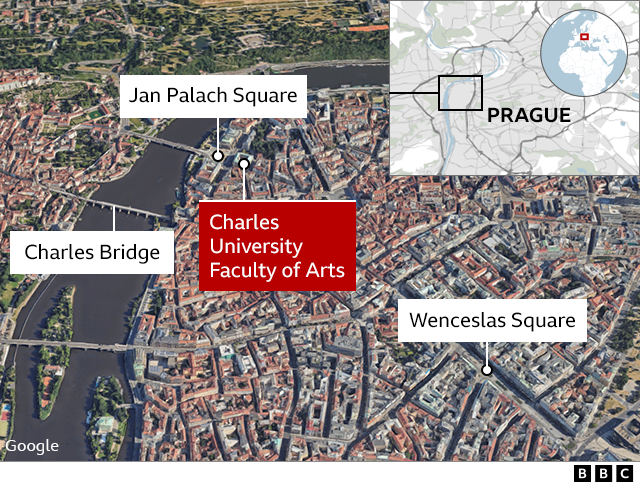
European Commission President Ursula von der Leyen wrote on X that she was “shocked by the senseless violence”. She added: “We stand and mourn with you.”
An email to staff at the philosophy faculty of Charles University, seen by Reuters, warned staff of the shooting. It read: “Stay put, don’t go anywhere, if you’re in the offices, lock them and place furniture in front of the door, turn off the lights.”
Authorities said the whole of the square and several streets around the university were closed.
Charles University is located in Prague’s Old Town, about 500m from the historic Charles Bridge, a tourist magnet.
(BBC)
Foreign News
South Korea’s former first lady sentenced to jail term in bribery case
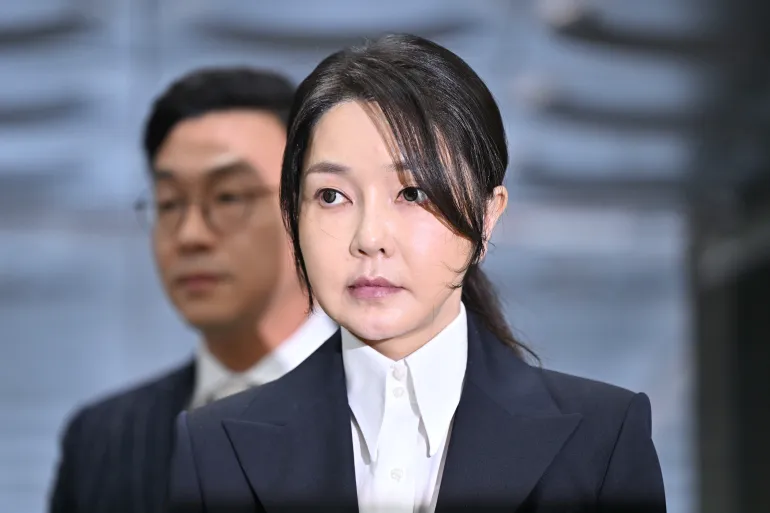
A South Korean court has sentenced former First Lady Kim Keon Hee to one year and eight months in prison after finding her guilty of accepting bribes from the Unification Church, according to South Korea’s official Yonhap news agency.
The Seoul Central District Court on Wednesday cleared Kim, the wife of disgraced ex-President Yoon Suk Yeol, of additional charges of stock price manipulation and violating the political funds act.
Kim was accused of receiving bribes and lavish gifts from businesses and politicians, as well as the Unification Church, totaling at least $200,000.
The prosecution team had also indicted Unification Church leader Han Hak-ja, now on trial, after the religious group was suspected of giving Kim valuables, including two Chanel handbags and a diamond necklace, as part of its efforts to win influence with the president’s wife.
Prosecutors in December said Kim had “stood above the law” and colluded with the religious sect to undermine “the constitutionally mandated separation of religion and state”.

Prosecutor Min Joong-ki also said South Korea’s institutions were “severely undermined by abuses of power” committed by Kim.
The former first lady had denied all the charges, claiming the allegations against her were “deeply unjust” in her final testimony last month.
But she has also apologised for “causing trouble despite being a person of no importance”.
[Aljazeera]
Foreign News
Plane crash kills prominent Indian politician Ajit Pawar
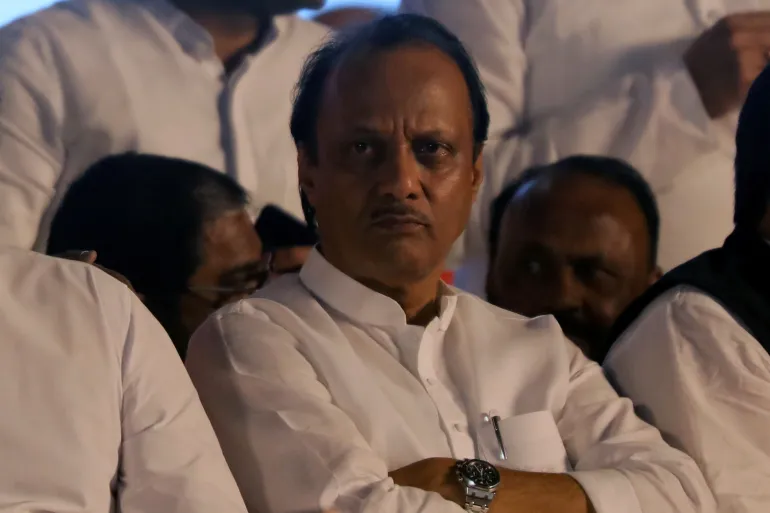
A plane crash has killed the deputy chief minister of India’s Maharashtra state, Ajit Pawar, the country’s aviation regulator has said.
The plane, which took off from the state capital, Mumbai, on Wednesday, crash-landed at the airport in Pawar’s constituency of Baramati, according to the Directorate General of Civil Aviation (DGCA).
Two members of the prominent politician’s staff and two crew members were also reported to have been killed.
The cause of the crash has not yet been officially confirmed.
Flightradar24, an online flight tracking service, said the aircraft was attempting a second approach to Baramati airport when it crashed.
The Times of India newspaper quoted DGCA officials as saying the aircraft, a Learjet 45 operated by a company called VSR, crashed at about 8:45am local time (03:15 GMT).
The daily said Pawar, the nephew of veteran politician Sharad Pawar, who founded the Nationalist Congress Party (NCP), was on his way to attend a public rally for the district council elections.
A witness quoted by the newspaper said the aircraft exploded moments after hitting the ground.
“When we rushed to the spot, the aircraft was on fire. There were four to five more explosions. People tried to pull the passengers out, but the fire was too intense,” said the witness.

Pawar, 66, built his political base through the grassroots cooperative movement. He was a key figure in state politics and served as the second-highest elected official in Maharashtra, as part of the larger federal governing coalition led by Prime Minister Narendra Modi.
He wielded considerable influence in the state’s vibrant sugar belt and was known for his ability to mobilise rural voters.
[Aljazeera]
Foreign News
Naqvi casts uncertainty on Pakistan’s participation in T20 World Cup after Bangladesh ouster
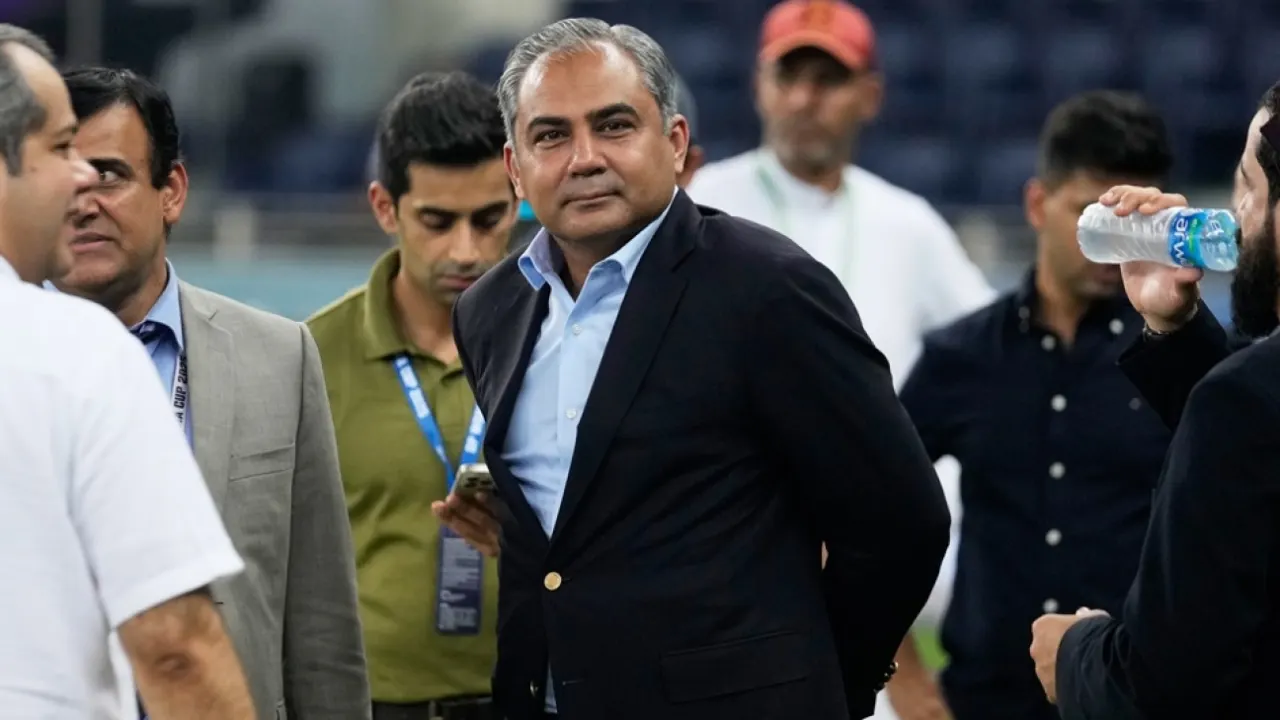
Pakistan’s participation at the upcoming Men’s T20 World Cup 2026 has been thrown into uncertainty after the PCB chairman Mohsin Naqvi said a final decision would be made after talking to Pakistan’s government. Speaking shortly after the ICC officially removed Bangladesh from the T20 World Cup owing to their refusal to play in India, Naqvi accused the ICC of “double standards” favouring India, and termed what happened to Bangladesh “an injustice”.
“Our stance on World Cup participation will be what the government of Pakistan instructs me,” he said. “The Prime Minister is not in Pakistan right now. When he returns, I’ll be able to give you our final decision. It’s the government’s decision. We obey them, not the ICC.”
Over the past week or so, Pakistan has firmly thrown its support behind Bangladesh in their dispute with the ICC demanding a venue outside of India to play their T20 World Cup matches. At an ICC meeting last week, the PCB was understood to be the only board to back the BCB in their stance. The tournament is jointly hosted by India and Sri Lanka, but Bangladesh’s games were all scheduled in India. Bangladesh, however, have said it is no longer safe for them to play in India after the BCCI, on January 3, instructed Kilkata Knight Riders to release Mustafizur Rahman rom their IPL 2026 squad.
Though no reason was stated for that directive, it came amid deteriorating relations between India and Bangladesh. On January 4, the BCB wrote to the ICC after consultation with the government that the Bangladesh team would not travel to India for its T20 World Cup matches due to security concerns, a stance it stuck to through several subsequent discussions with the ICC.
The ICC has repeatedly refused Bangladesh’s request, and earlier this week gave them an ultimatum demanding them to accept the schedule as it was, or face being removed from the tournament. On Saturday, with Bangladesh sticking to their position, the ICC formally announced Bangladesh would not be part of the T20 World Cup, and would be replaced instead by Scotland.
Naqvi was critical of the decision, calling it an injustice to Bangladesh. “I think Bangladesh has been hard done by,” he said. “You can’t have double standards. You can’t say for one country [India] they can do whatever they want and for the others to have to do the complete opposite. That’s why we’ve taken this stand, and made clear Bangladesh have had an injustice done to them. They should play in the World Cup, they are a major stakeholder in cricket.”
While there have been local, unverified reports that the PCB would refuse to participate in the World Cup in solidarity with Bangladesh should they be removed, the PCB has declined to confirm to ESPNcricinfo when approached. Naqvi’s comments to the media on Saturday was the first time anyone at the PCB has directly addressed the issue, where he repeatedly said the decision was no longer in the hands of the PCB.
“If the government of Pakistan says we mustn’t play, then maybe the ICC will bring in a 22nd team (after Scotland). It’s up to the government.”
No specific reason was given by Naqvi other than to support Bangladesh, as to why government permission would now be required for an event that starts in two weeks. Last year, both BCCI and PCB, with the approval of ICC, signed up to a hybrid model agreement by which both countries would play each other on neutral territory for all global events in the 2024-27 rights cycle.
Pakistan play all their games in Sri Lanka for this event (which already was a co-hosted event) and are scheduled to play the opening game of the tournament, against Netherlands on February 7. They are scheduled to play India on February 15 in Colombo in their group stage clash.
[Cricinfo]
-

 Business3 days ago
Business3 days agoComBank, UnionPay launch SplendorPlus Card for travelers to China
-

 Business4 days ago
Business4 days agoComBank advances ForwardTogether agenda with event on sustainable business transformation
-

 Opinion4 days ago
Opinion4 days agoConference “Microfinance and Credit Regulatory Authority Bill: Neither Here, Nor There”
-
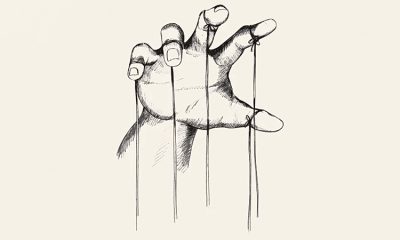
 Opinion6 days ago
Opinion6 days agoA puppet show?
-

 Opinion3 days ago
Opinion3 days agoLuck knocks at your door every day
-

 Business5 days ago
Business5 days agoDialog Brings the ICC Men’s T20 Cricket World Cup 2026 Closer to Sri Lankans
-
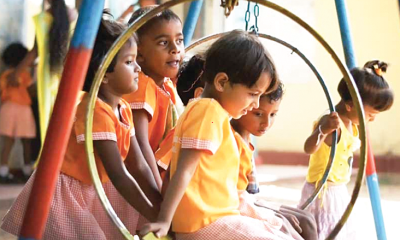
 Features6 days ago
Features6 days ago‘Building Blocks’ of early childhood education: Some reflections
-

 News4 days ago
News4 days agoRising climate risks and poverty in focus at CEPA policy panel tomorrow at Open University













